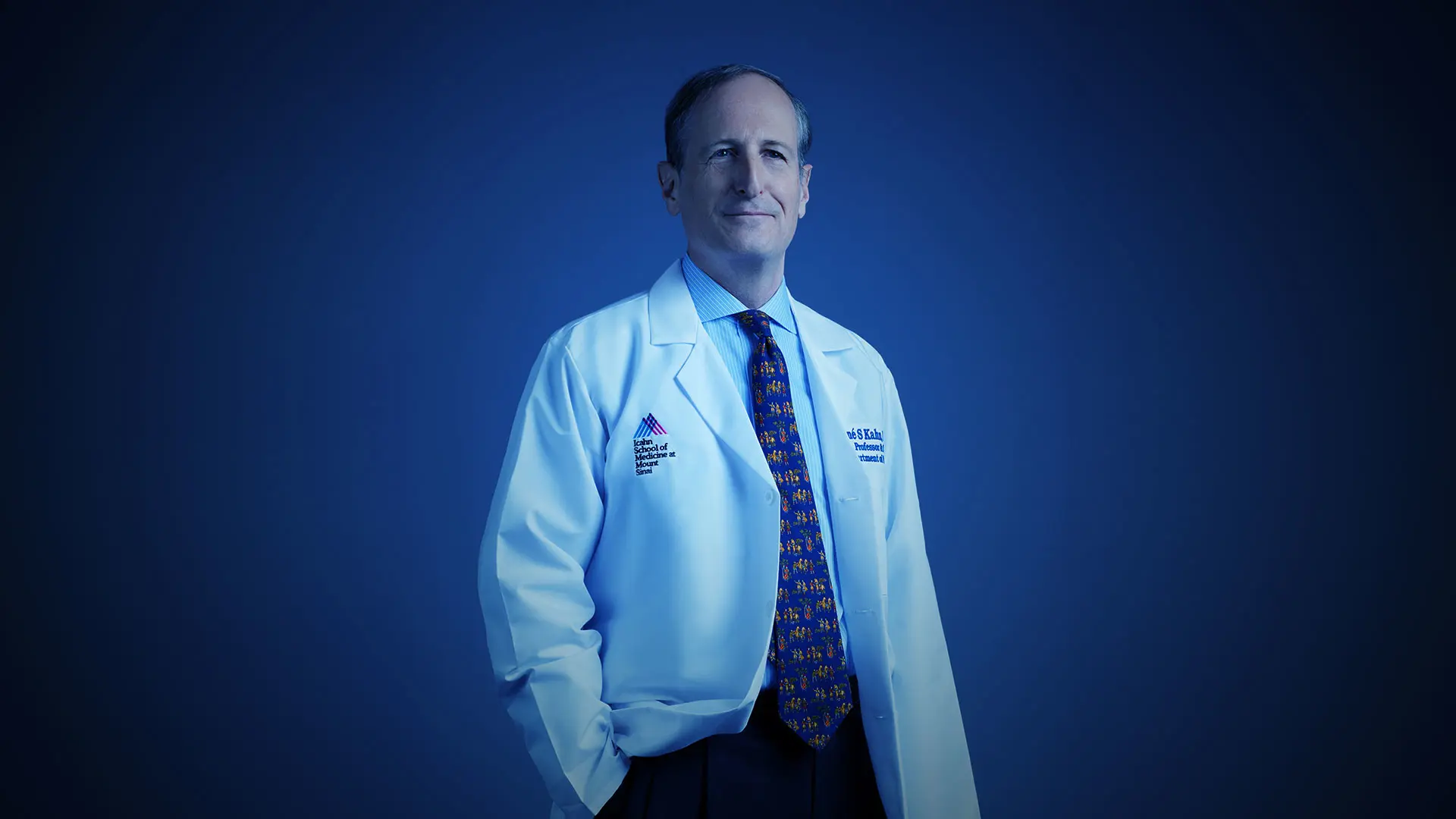Mount Sinai’s Department of Psychiatry is one of the most productive in the nation. In 2021, we were ranked No. 7 in National Institutes of Health (NIH) funding for psychiatry, published more than 850 papers, completed more than 800,000 outpatient visits, and received $49 million in active grants. We have more than 300 faculty, with seven highly cited researchers, and seven who are members of the National Academy of Medicine.
We also launched three new centers last year. Collectively, these new programs represent the future of psychiatry and demonstrate Mount Sinai’s commitment to innovating to meet the needs of our patients.
The Center for Psychedelic Psychotherapy and Trauma Research studies unconventional treatment methods such as MDMA-assisted psychotherapy for post-traumatic stress disorder (PTSD), depression, and anxiety in veterans and civilians. The U.S. Food and Drug Administration designated this therapy as a breakthrough treatment for PTSD in 2017, and trials are underway to learn more about this promising option. Our new center is one of a handful of research centers nationwide studying MDMA-assisted psychotherapy. We plan to expand our research to study other psychedelic-assisted psychotherapies using compounds such as psilocybin. Using computational genetics, molecular biology, and neuroimaging, we hope to accelerate the understanding of how, when, and for whom these treatments work.
$49 million in active grants
In another future-looking endeavor, we established the Center for Computational Psychiatry. The center is one of the world’s first integrated programs to study how quantitative tools and methodologies can improve the diagnosis and treatment of mental health issues, such as addiction, eating disorders, autism, and personality disorders. Since its inception a decade ago, computational psychiatry has become one of the fastest growing and most exciting areas in neuropsychiatry. Our new center will leverage rich clinical resources and computational expertise across departments to link brain mechanisms to behavior and develop life-changing treatments for those with psychiatric disorders.
Most recently, we launched the Jeff and Lisa Blau Adolescent Consultation Center for Resilience and Treatment. This novel clinical-research center will focus on schizophrenia, a devastating mental illness that typically emerges before or during adolescence. The Center will serve as a clinical and research platform to increase our understanding of
schizophrenia, improve treatments for patients with the illness, and develop new interventions for those at increased risk. We envision the center providing a paradigm shift for the field, combining state-of-the-art clinical care with groundbreaking research using the latest tools in clinical data science, artificial intelligence, and genomics.
It has been a busy year for our department, and we are proud of our achievements. To learn more about our research and clinical programs, please take a look at the contents of this 2022 report or visit icahn.mssm.edu/psychiatry.
